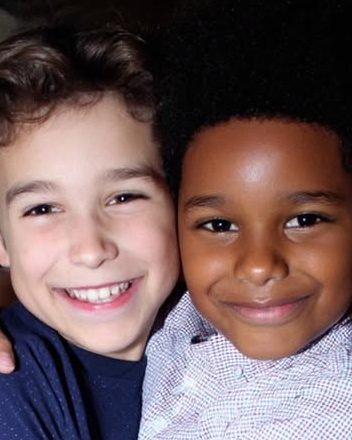
The night my 12-year-old son came home from his best friend’s funeral, the silence in our apartment felt heavier than any words could be. Caleb didn’t drop his backpack, didn’t ask for dinner, didn’t complain about homework. He quietly slipped into his room and closed the door. Hours later, I found him sitting on the floor, clutching Louis’s old baseball glove as if it were the last piece of his friend he could still hold.
Louis and Caleb had been inseparable since kindergarten. They wore matching Halloween costumes, built incredible Minecraft worlds together, and played side by side in Little League. But when cancer took Louis far too soon, it left a hole in Caleb’s heart that nothing seemed to fill.
Therapy helped, just a little. Time helped, too—but grief has no timetable. Some days Caleb laughed again, but on others, it was as if joy had disappeared from our home entirely.
Then one June evening at dinner, he looked up and said, “Mom, Louis deserves a headstone. A real one. And maybe a night where everyone remembers him.”
Before I could answer, he added, “I’ll earn the money. I don’t want anything for summer. I’ll mow lawns, walk dogs, wash cars—whatever it takes.”
In that moment, grief began to shift into purpose.